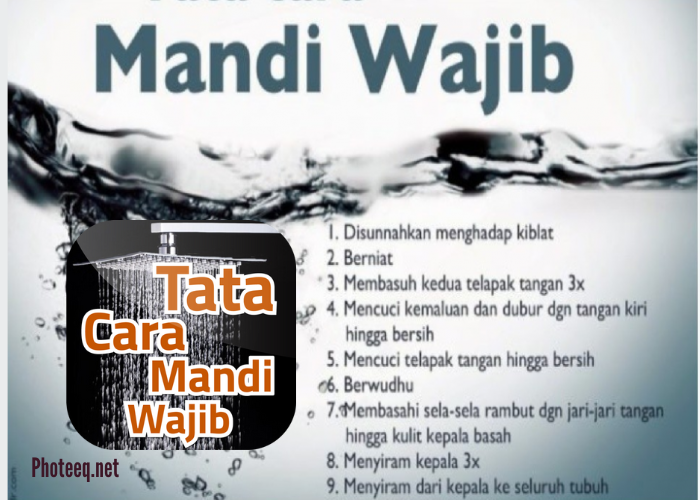In the rich tapestry of religious and cultural practices around the world, the act of purification holds a special place. It signifies the removal of impurities, both physical and spiritual, and serves as a means of getting closer to the divine. One such purification ritual deeply ingrained in the Islamic tradition is known as Tata Cara Mandi Wajib. This sacred practice, observed by Muslims, carries profound significance and is an essential aspect of their faith. In this article, we will delve into the depths of this ritual, its history, significance, and the step-by-step guide to performing it.
Understanding Tata Cara Mandi Wajib
Tata Cara Mandi Wajib is an Indonesian term that translates to The Procedures for Performing Wajib Bath. In the Islamic faith, Wajib (or obligatory) Bath is a form of ritual purification, which is required in specific circumstances. The primary objective of this purification is to cleanse oneself, both physically and spiritually, in preparation for acts of worship or after specific impure occurrences.
The Significance of Wajib Bath
Before delving into the detailed procedures of Tata Cara Mandi Wajib, it’s essential to understand the significance of this purification ritual in the Islamic faith.
Spiritual Cleansing
Wajib Bath serves as a means of spiritual purification. It allows Muslims to cleanse themselves of impurities, restoring a state of ritual purity (Taharah) required for religious obligations such as prayer and fasting.
Atonement for Specific Acts
This ritual is obligatory for atonement after certain actions or occurrences that result in ritual impurity, such as sexual intercourse, menstruation, postpartum bleeding, and ejaculation.
Preparation for Worship
Muslims are required to be in a state of ritual purity before engaging in acts of worship like Salah (prayer), recitation of the Quran, and entering a mosque. Wajib Bath ensures that one is spiritually and physically prepared for these acts.
Reaffirmation of Faith
Performing Wajib Bath is a symbolic act of renewing one’s commitment to their faith. It reinforces the sense of devotion and submission to Allah (God).
The History and Tradition
Wajib Bath is rooted in the teachings of Islam, derived from the Quran and the Hadith (sayings and actions of Prophet Muhammad). The Quran emphasizes the importance of cleanliness and purity in multiple verses. For instance, in Surah Al Ma’idah (5:6), it states: O you who have believed, when you rise to [perform] prayer, wash your faces and your forearms to the elbows and wipe over your heads and wash your feet to the ankles. This verse highlights the significance of ablution (Wudu) and Bath (Ghusl) in Islam.
The procedures for Wajib Bath are also detailed in the Hadith, where Prophet Muhammad provided guidance on when and how to perform this purification ritual. Over time, Islamic scholars and jurists developed a comprehensive set of rules and guidelines, which are followed by Muslims today.
Performing Tata Cara Mandi Wajib Step by Step Guide
Now, let’s explore the step-by-step guide to performing Tata Cara Mandi Wajib:
Intentions (Niyyah)
The first step in any Islamic ritual is to make a sincere intention. One must have the clear intention of performing Wajib Bath to purify oneself for the sake of Allah.
Washing Hands
Begin by washing your hands three times. Use water to ensure that your hands are thoroughly cleansed.
Private Parts
Cleanse your private parts with water to remove any impurities. This step is crucial for achieving complete purity.
Performing Wudu (Ablution)
Before proceeding with the full bath, you need to perform Wudu, which includes washing your face, hands, mouth, nose, feet, and wiping your head. Ensure that you perform Wudu correctly as per Islamic guidelines.
Pouring Water Over the Entire Body
Now, stand in a clean place and pour water over your entire body three times, starting with the right side. Make sure that water reaches every part of your body, ensuring complete purification.
Washing the Hair
Thoroughly wash your hair, ensuring that water reaches the roots. Use your fingers to ensure that the water penetrates the hair.
Rinsing the Mouth and Nose
Gargle your mouth three times and rinse your nose three times, using a separate handful of water for each rinse.
Final Declaration
After completing the steps above, make a declaration of your completion of Wajib Bath. This is a moment for reflection and reconnection with your faith.
Conclusion
Tata Cara Mandi Wajib is a sacred ritual in the Islamic tradition, embodying the principles of cleanliness, purity, and devotion. Understanding the significance and following the step by step guide to performing Wajib Bath is essential for Muslims seeking spiritual purification and preparing for acts of worship. This timeless practice continues to be a vital part of the lives of millions, reaffirming their faith and connection with Allah.







